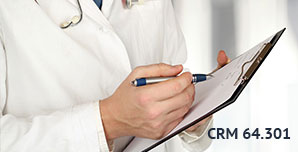Never disregard professional medical advice or delay in seeking it because of something you have read on this website. In the event of a medical emergency, call a doctor or 911 immediately. This website does not recommend or endorse any specific tests, physicians, products, procedures, opinions, or other information that may be mentioned on the Site.
All except one informant had experiences of using substances after they left inpatient treatment in Tyrili. They created meaning related to substance use by referring to struggles in everyday life and powerful patterns sober living blog due to former substance use. During the four years after they left inpatient treatment in Tyrili, they emphasised that feeling safe when it came to housing, the neighbourhood, violence or finances was essential.
Is a view of addiction as a brain disease deterministic?
“This is really good news I think and something to share and be hopeful about,” said Dr. John Kelly, who teaches addiction medicine at Harvard Medical School and heads the Recovery Research Institute at Massachusetts General Hospital. This site is not intended to provide, and does not constitute, medical, health, legal, financial or other professional advice. Brie graduated as a high school valedictorian with a major in Health Technologies and continued her studies at Springfield Technical Community College with a focus on healthcare.
- Once a person has experienced addiction, it is impossible to erase the memory.
- She takes the medicine buprenorphine, which acts to dull her body’s yearning for opioids, but she was not ready to let go of meth.
- They are embarrassed to mention that they still have occasional cravings or that they are no longer sure if they had an addiction.
- Another is reorienting the brain circuitry of desire—finding or rediscovering a passion or pursuit that gives meaning to life and furnishes personal goals that are capable of supplanting the desire for drugs.
There are numerous references to the term recovery in the literature and it is generally defined as an outcome of treating chronic disorders such as addiction (3-5). And what is generally recognized is that recovery refers to more https://ecosoberhouse.com/article/top-10-substance-abuse-group-activities/ than simply refraining from taking drugs (6). The informants who had periods of severe use of substances all talked about demanding situations relating to work, troubled relationships, mental health problems, or loneliness.
An Artist And A Scientist Take On The Stigma Of Addiction
Three received opioid maintenance therapy (OMT) and were in contact with a GP or therapist. Eight had been in treatment for trauma, anxiety, depression, psychosis or insomnia, and three had or were waiting for treatment for ADHD. Also, four informants mentioned participation in activities and support groups run by NGOs, as described above. Five informants had received inpatient treatment for substance use and mental health problems or detox several times since they left Tyrili. Other research pinpoints the values of cognitive behavioral therapy for relapse prevention, as it helps people change negative thinking patterns and develop good coping skills. In addition, learning relaxation techniques can help those in recovery by reducing the tension that is often an immediate trigger of relapse, become comfortable with uncomfortable feelings, and release negative feelings that can trigger relapse.
Twelve-step groups include Alcoholics Anonymous (AA), Narcotics Anonymous (NA), Marijuana Anonymous (MA), Cocaine Anonymous (CA), Gamblers Anonymous (GA), and Adult Children of Alcoholics (ACA). Every country, every town, and almost every cruise ship has a 12-step meeting. There are other self-help groups, including Women for Sobriety, Secular Organizations for Sobriety, Smart Recovery, and Caduceus groups for health professionals. It has been shown that the way to get the most out of 12-step groups is to attend meetings regularly, have a sponsor, read 12-step materials, and have a goal of abstinence [24,25].




